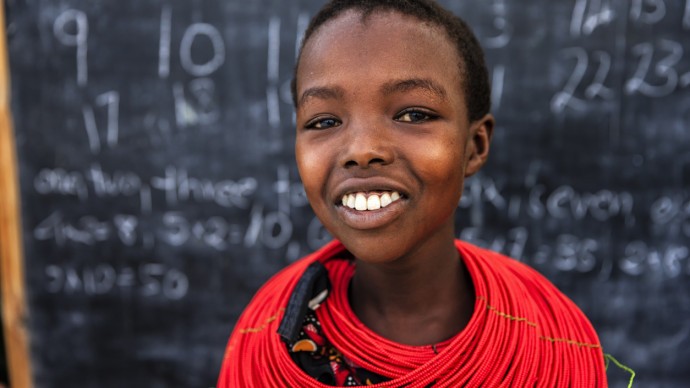
Research: Responding to the needs of refugees
Understanding and responding to the needs and challenges of refugees who experience communication disabilities, their carers, communities and service providers.
intro
Research summary
Researchers at Manchester Met have led a series of projects related to refugees who experience communication disabilities (CDs), and their carers and communities. The project began with the recognition by UNHCR Rwanda that refugees who also experience communication divisibility may be more vulnerable to sexual and gender-based violence (SGBV). This led to funding from the Humanitarian Innovation Fund to understand and describe the nature and size of the challenge of supporting SGBV survivors who experience CDs in refugee contexts in Rwanda and to engage relevant stakeholders.
Rwanda is host to over 147,889 refugees (as of August 2020), mainly from the Democratic Republic of Congo (DRC) and Burundi, including many people with disabilities (PWD). PWD are under-identified in humanitarian contexts and many fail to access support they need. Many people with invisible disabilities are not identified. Up to 50% of PWD may experience a CD, sometimes referred to as speech and language difficulties, and many people who experience communication disabilities (PWCD) go unidentified. This is partly because CDs are often associated with other diagnoses (eg intellectual disability) and are frequently invisible.
Refugees are commonly acknowledged to be at higher risk of SGBV than others in a community, due to community breakdown, family separation and risky behaviours undertaken to survive. PWD are three to four times more likely to suffer sexual abuse, and vulnerability increases further if they have a CD. Having a CD may make the reporting of SGBV challenging or impossible.
A recent literature review suggests that there is limited research about PWCD who are refugee-survivors of SGBV. There are no data available on the size and nature of the challenges facing refugee-survivors of SGBV with CDs in accessing support, and there is extremely limited reporting of Sexual and Reproductive Health Education (SRHE) and support services specifically adapted for refugee-survivors of SGBV with CDs.
project blog
findings
Our work with refugee-survivors of SGBV with CD began with our first project: a consultation, which analysed and evaluated the services which exist currently for refugees who experience CDs, to begin generating ideas for service improvements.
This first project led to a recognition that we needed to focus not only on responses to SGBV, but also on prevention and sexual and reproductive health education (SRHE). Our second project, therefore, aimed to understand current SGBV prevention, SRHE services and refugees’ perspectives, in order to begin to identify possible solutions to challenges.
This second project, its findings, and a short briefing note about the project, can be accessed here.
Our third project to date is looking at the needs of refugees who experience CDs, and their services providers, even more broadly. This work, funded by a Manchester Met Metropolis Chancellor’s Fellowship, has resulted in community members and service providers electing for Julie Marshall and her colleague, Manchester Met PhD student Helen Barrett, to work with UNHCR colleagues to develop the first adaptation of the Communication Access UK training, for use in a low and middle income country. So far the training has been delivered to five groups in Rwanda and has resulted in very positive evaluations and some lasting impacts. Planning is underway to develop, adapt and evaluate this work more widely.
UNHCR and Manchester Met have worked together to produce a case study of promising practice, ‘Improving communication accessibility for refugees with communication disabilities through capacity building - a case study from Rwanda’.
video
In Conversation with Professor Julie Marshall
‘The research we do here is unique, we really try to empower the communities we work with’.Professor Julie Marshall discusses her work with refugees who experience communication disabilities.
Outputs
Research outputs
Academic papers
- J. Marshall, H. Barrett (2018). Human rights of refugee-survivors of sexual and gender-based violence with communication disability. Int J Speech Lang Pathol. 20(1), pp.44-49.
-
Barrett H., Marshall J. & Goldbart J. (2019) Refugee children with communication disability in Rwanda: providing the educational services they need. Forced Migration Review, 60, 36-38.
-
Marshall J., Barrett H. & Ebengo, A. (2017) Vulnerability of refugees with communication disability to SGBV: evidence from Rwanda. Forced Migration Review 55.74-76 June.
-
Barrett, H., Marshall, J. and Goldbart, J.(2019) Refugee children with communication disability in Rwanda: providing the educational services they need.
-
Marshall, J., Barrett, H. and Ebengo, A. Vulnerability of refugees with communication disabilities to SGBV: evidence from Rwanda.
-
Barrett, H. and Marshall, J. (2017) Understanding Sexual and Gender-Based Violence against Refugees with a Communication Disability and challenges to accessing appropriate support, a literature review.
Reseach team
Funding
With funding from

ELRHA
Enhancing Learning and Research for Humanitarian Assistance
Contact
Contact us
For general enquiries about the Communication Disability group, you can contact research group lead Professor Janice Murray.
For enquiries specifically about this project, contact Professor Julie Marshall.


